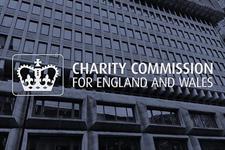Aid charities must do more to tackle exploitation and abuse, the Charity Commission has warned.
The warning comes after an analysis of recent serious incident reports submitted to it identified areas of weaknesses and risk around safeguarding, the regulator said.
In an alert to 5,000 charities working outside the UK, the commission urges charities to make it easier for recipients of aid to report allegations of misconduct and abuse and to take a “survivor-centred” approach to handling incidents of harm.
It warns that all charities must always be alert to the risk of sexual harassment, exploitation and abuse and should foster a culture committed to rooting it out.
The alert recommends that charities consider joining the Misconduct Disclosure Scheme, which aims to prevent sexual abusers moving between different aid organisations, give victims and survivors a safe means to report concerns, and design reporting mechanisms that are sensitive to the local context.
It also recommends developing a survivor-centred approach to safeguarding and clearly communicating what support is available to victims and survivors and how it can be accessed.
The commission said that in 2019/20 it received 5,730 serious incident reports from charities in England and Wales, of which 3,411 related to safeguarding, an increase of nearly 40 per cent on the previous year (3,895 and 2,504, respectively).
The commission’s recommendations echo the report from the House of Commons International Development Committee, published in January, which found that sexual exploitation and abuse continued to be “a scourge” on the international development sector.
Helen Stephenson, chief executive of the Charity Commission, said today: “No one should ever be exposed to abuse or exploitation, but when people are harmed while in the care of a charity, it undermines the very meaning of charity.
“The public expect charities to keep the people they care for safe from harm, and to place the highest priority on the needs and interests of vulnerable people.
“I know that many international aid charities, doing vital work in challenging environments, have worked hard to improve their safeguarding practices over recent years. But we continue to see cases of harm perpetrated by people in positions of power in charities working overseas.
“More needs to be done. Leaders of international aid charities need to ensure they have the systems and structures in place that prevent and root out harmful behaviour and empower victims and survivors to raise concerns.
“But systems alone are never enough – they need to be underpinned by leaders who place the highest priority on keeping people safe. There is simply no room for complacency.”
